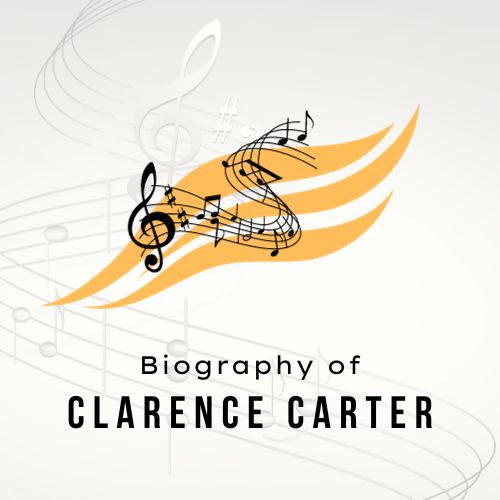Early life and teaming with Calvin Scott
Clarence George Carter was born on January 14, 1936 in Montgomery, Alabama. Blind from birth, he found solace and leaned on music by teaching himself guitar. He went to a school for the blind and to a normal state college in Alabama where he majored in music.
Carter and classmate/fellow blind musician Calvin Scott began to form an act simply called Clarence & Calvin in 1960, first signing on to Fairlane label. After releasing a couple of singles there, the duo switched to Duke Imprint and renamed themselves as C & C. Still after releasing a handful of singles on the label, they failed to generate any attention. Making another attempt, in 1965 the duo trooped to Rick Hall’s FAME Studios in Muscle Shoals and recorded “Step By Step” there. The single was later released by Atlantic Records’s Atco label, but again it failed make a dent on the charts.
Solo career
C & C performed in Alabama’s local clubs, until in the mid-1960s where they were involved in a vehicular accident. This left Scott seriously injured, and eventually they parted ways. Carter had no other choice but to strike out on his own, and he signed as a solo artist to Fame label. After a couple of singles there, Carter returned to Atlantic in 1967.
Carter’s first solo single was the self-penned “Tell Daddy,” released in 1967. It was released as a response to Etta James’ “Tell Mama.” He would enjoy his first major commercial hit with “Slip Away” (1968) which was an excellent ballad about cheating that highlighted Carter’s baritone singing supported by a superior backing band. It peaked at #6 on the Hot 100 and #2 on the R&B singles chart.
Peak years: 1968-1970
This was the beginning of Carter’s string of hits, continuing with “Too Weak To Fight” (#13 pop, #3 R&B), “Snatching It Back” (#31 pop, #4 R&B), “The Feeling Is Right” (#65 pop, #9 R&B), “Doin’ Our Thing” (#46 pop, #9 R&B), and “I Can’t Leave Your Love Alone” (#42 pop, #6 R&B).
Carter would achieve his biggest pop chart success to date with 1970’s “Patches,” which peaked at #4 on the Hot 100. This sentimental ballad also reached #2 on both the US R&B and UK singles charts. It eventually won the Grammy for Best R&B Song category in 1971.
Later career
Carter would achieve some minor hits on Atlantic label such as “It’s All In your Mind,” “The Court Room,” “Slipped, Tripped and Fell in Love,” and “Scratch My Back.” He returned to fame again in around 1972, releasing “Back In Your Arms Again,” “Mother-In-Law,” “Sixty Minute Man,” and other minor hits.
In 1975, Carter attempted to regain his old glory (by signing with ABC label), but with the advent of disco, Carter’s career took a back seat. In 1985, he signed to the fledgling imprint Ichiban Records which saw him releasing records that threw him back to his earlier style. His LP on the label Dr. C. C. garnered generally positive reviews.
One of Carter’s songs to come out of the Ichiban Records label was the hilariously ribald “Strokin'”, whose explicit content rendered it too unsuitable for public release. But due to word-of-mouth promotion, “Strokin'” became really popular. In fact, the song was used for the films The Nutty Professor and Killer Joe.
He has continued to perform up to the new millennium, regularly touring the Southern states where he maintains a strong fan base, as well as internationally.

